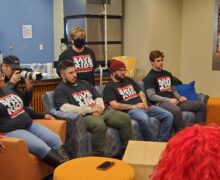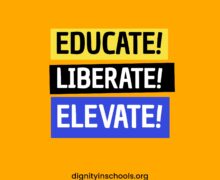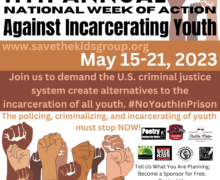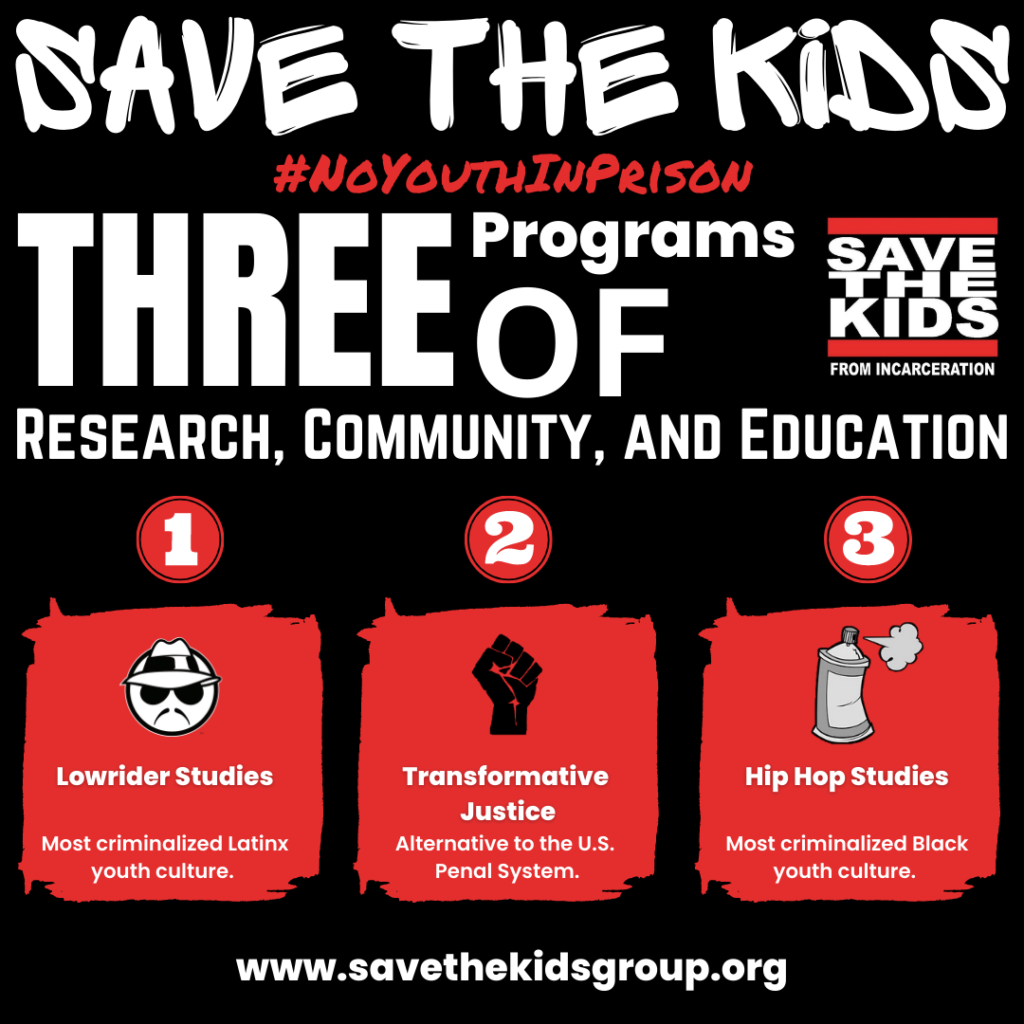April 30, 2021 – 1st Annual Southwest Justice, Peace, and Conflict Studies Conference
April 30, 2021
1st Annual
Southwest Justice, Peace, and Conflict Studies Conference
Free, Online, Open to the Public, Recorded, Zoom Webinar
Webinar Registration – Zoom
For any information or questions contact:
Dr. Erik Juergensmeyer
juergensmeyer_e@fortlewis.edu
Sponsored by
Save the Kids, Institute for Critical Animal Studies, Academy for Peace Education, JEDI4ST at Salt Lake Community College, Arissa Media Group, Peace Studies Journal, and Southwest Justice, Peace, and Conflict Studies Consortium
TIME
9:00am to 1:00pm Western Time USA
10:00AM to 2:00pm Mountain Time USA
11:00AM to 3:00pm Central Time USA
12:00pm to 4:00pm Eastern Time USA
SCHEDULE
(Time Based on Mountain Time USA)
10:00am-10:30am
Welcome and Introductions
Dr. Erik Juergensmeyer
10:30am-10:50am
New Approaches on Conflict Resolution
Sir Dr. Clyde Rivers
Description: Dr. Clyde Rivers will discuss a new a approach to conflict resolution based on his book, When Histories Collide. His approach allows everyone equitable access to and a voice at the table of dialogue.
Biography: Dr. Clyde Rivers is the global leader of the world civility movement, teaching people to value the contributions of others. He is the founder and president of iChange Nations, the world’s largest culture-of-honor network in the world. Dr. Rivers is also the first recipient of the Danny K. Davis Congressional Peace Prize Award presented by Congressman Danny K. Davis from Illinois. He is the global board chairman and representative to the United Nations for the Organization of Poverty, Alleviation and Development based in Stockholm, Sweden.
10:50am-11:00am Q and A
11:00am-11:20am
Completing the Dream
Xris Macias
Description: Dreamers are defined as immigrants brought to this country at a young age by their parents, those who would have benefited from the Dream Act. Their experience is not just about waiting for legal cases and senate bills. Their lives revolve around the political system, politics, and politicians. Education is a key component towards residency and citizenship. What does it take to complete their “Dream”? My job is to ease the burden of understanding policy and law. Seeking justice through education. Here I will discuss our work in the Dream Center at the University of Utah towards these goals and how you can be an ally. Together let’s complete that Dream.
Biography: Xris Macias is the Director of the DREAM Center at the University of Utah where he works with undocumented students, mixed status folks, and their allies. He holds Bachelors Degree in Human Development and Family Studies, and a Master’s degree in Education Culture and Society, where he focused on Lowrider Pedagogy as his area of research. He is also a Foreign Language and Area Studies (FLAS) fellow, with the focus area of Latin America. Xris is also Co-Chair of the local Chicana/o Scholarship Fund and member of the local autonomous chapter of the Brown Berets. In his personal life, he enjoys watching movies, training Capoeira, and cruising his 1967 Impala on the weekends. Xris Speaks Spanish and Portuguese and enjoys spending time with his wife and two sons.
11:20am-11:30am Q and A
11:30am-11:50am
Restorative Justice in the Southwest: Opportunities for Literacy and Action
Dr. Erik Juergensmeyer
Description: Through lenses of rhetorical ecologies and genre studies, this presentation seeks to build a coalition in the Southwestern United States. It demonstrates how commonly written genre can illuminate restorative practices in our communities, sharing our work with stakeholders and strengthening our alliances.
Biography: Erik Juergensmeyer is Professor of English and Coordinator of Peace and Conflict Studies at Fort Lewis College in Durango, Colorado. In addition to teaching classes on rhetoric and conflict management, he also practices conflict resolution in his community, offering mediation and facilitation services.
11:50am-12:00pm Q and A
12:00pm-12:20pm
Restorative Justice Programming-Administering an RJ Program in the Criminal Justice Setting
Brian Miller
Description: Engage in learning about how administering a successful RJ program within the criminal justice setting can positively affect both the offender and the community. See a results-based program, how a variety of programs within Restorative Justice can provide success, results and low recidivism.
Biography: Brian Miller: I work as the Diversion Coordinator at the 6th JD District Attorneys Office administering the Restorative Justice programs since 2014. This includes Adult Diversion, Community Conferences and Victim Offender Dialogues among other programs. Prior to my experience in RJ, I worked as a Probation Officer and a Crisis Therapist in the Community Mental Health setting. I also currently serve as the President of the Board of Directors for SASO which is our local Sexual Assault Services Organization. I strive to continue to find ways in which Restorative Justice can evolve to serve both offenders as well as community members and stakeholders.
12:20pm-12:30pm Q and A
12:30pm-12:50pm
Using Queer Ecology to Foster Peace and Justice
Kati Lewis
Description: Queer ecology considers how sexual politics and power dynamics affect the ways we perceive, construct, and constitute nature. Drawing from a diverse array of disciplines such as queer theory, second-wave ecocriticism, Marxism, geography, biology, a queer ecology dismantles reductive, binary thinking about humans and nature, the past and present and future, all facets of the human condition in the contexts of the broader world humans have sought to control. Applying a queer ecology to social justice activism allows us to create more meaningful systems of justice, healing, belonging and being because it is intersectional, communal, pluralistic, queer.
Biography: Kati Lewis is an Associate Professor of English at Salt Lake Community College. There is no hierarchy to the following ways of being that Lewis inhabits her body and mind. She’s a teacher, lover, activist, mother, hiker, sometimes marathoner, and need-to-find-more-time-for-writing writer. As a sexual violence survivor and bisexual womxn raised in a very patriarchal religion, her teaching and writing investigate the myriad sociopolitical and environmental experiences of intersectional identities, stories, and histories. Three of the major frameworks for her research, teaching, and writing are exploring themes of silence and voice in the United States, the power and importance of real representation, and the necessity of unerasing intersectional LGBTQ+ histories.
12:50pm-1:00pm Q and A
1:00pm-1:20pm
Precarity, Carceral Logics ,and the Contemporary Vegan Movement
Z. Zane McNeill
Description: The animal advocacy movement is at a crossroads, having a long history of fighting for the nonhuman ‘voiceless’ at the expense of the most marginalized people. In 2019, Justin Marceau contended that if the movement didn’t move past its single-issue focus, that is, in Marceau’s words, assimilation into the “coercive, prosecutorial arm of the state,” it would continue to alienate other anti-oppression movements. Over two years later, the issues critiqued by Marceau in Beyond Cages: Animal Law and Criminal Punishment persist. The schism between advocates who view connecting animal liberation to other issues of social justice as ‘diluting the message’, and those who argue for consistent anti-oppression grows every day. Not only has the discussion inspired work by advocates Aph and Syl Ko, Christopher Sebastian, Marek Muller, Julia Feliz, Margaret Robinson, and Breeze Harper, and others—it has also led to unionization efforts at groups like the Animal Legal Defense Fund (ALDF). To end captivity for nonhumans, it is imperative that we abolish all forms of domination, including the carceral State.
Biography: Z. Zane McNeill, is an animal activist and human rights advocate with over 7 years’ experience as a grassroots organizer, public policy analyst, government relations liaison, and litigation specialist with over a dozen human rights, environmental justice, and animal welfare organizations including the ASPCA, HSUS, and, most recently, ALDF. He has a MA in Political Science from Central European University, is a fellow with the Institute of Critical Animal Studies, and a community ambassador to Sentient Media. In 2020 he founded Roots DEI Consulting and Policy, a consulting group specializing in consistent anti-oppression equity work, specifically around trans and queer liberation, for animal welfare organizations. They also are the co-editor of Queer and Trans Voices: Achieving Liberation Through Consistent Anti-Oppression published by Sanctuary Publishers and have the anthology, Vegan Entanglements: Dismantling Racial and Carceral Capitalism, forthcoming from Lantern Publishing. He has an extensive writing portfolio, which you can find here.
1:20pm-1:30pm Q and A
1:30pm-1:50pm
Transformative Justice and Abolition Criminology
Dr. Anthony J. Nocella II
Description: This presentation will discuss in an introductory manner the differences and similarities between abolition criminology and transformative justice. This presentation will take into consideration how religion, faith, socio-political positions, and origins influenced the two in their conceptualization.
Biography: Anthony J. Nocella II, Ph.D., scholar-activist, is an Assistant Professor in the Department of Criminal Justice and Criminology in the Institute of Public Safety at Salt Lake Community College. He is the editor of the Peace Studies Journal, Transformative Justice Journal, and co-editor of five book series including Critical Animal Studies and Theory with Lexington Books and Hip Hop Studies and Activism with Peter Lang Publishing. He is the National Director of Save the Kids and Executive Director of the Institute for Critical Animal Studies. He has published over fifty book chapters or articles and forty books. He has been interviewed by New York Times, Washington Post, Houston Chronicles, Fresno Bee, Fox, CBS, CNN, C-SPAN, and Los Angeles Times.
1:50pm-2:00pm Q and A





